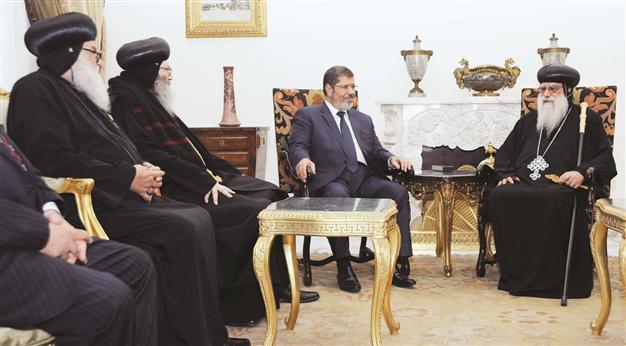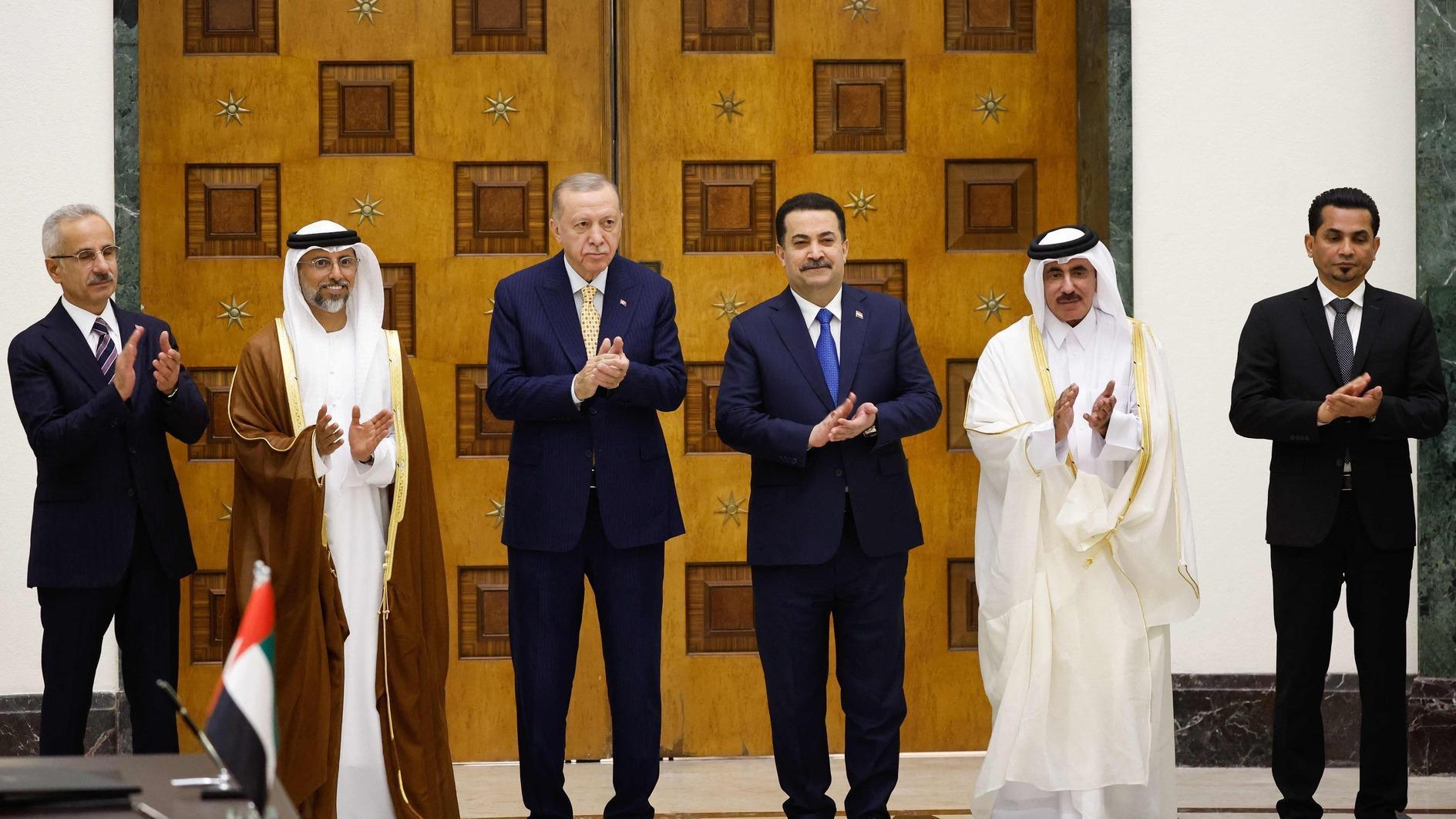Egypt set for woman, Coptic VPs
CAIRO

The Muslim Brotherhood’s president-elect Mohammed Morsi(C) meets with Egyptian Coptic Bishop Bakhomious at his office in the Presidency. According to his policy adviser, Morsi will appoint a woman as one of his vice presidents and a Christian as another. REUTERS photo
Newly elected Egyptian President Mohamed Morsi is set to make history in the country by appointing a woman as one of his vice presidents and a Christian as another, his policy adviser said.“For the first time in Egyptian history, not just modern but in all Egyptian history, a woman will take that position,” Ahmed Deif told CNN. “And it’s not just a vice president who will represent a certain agenda and sect, but a vice president who is powerful and empowered and will be taking care of critical advising within the presidential Cabinet.” Morsi will appoint six vice presidents.
The Muslim Brotherhood is struggling to allay fears of what an Islamist president might mean for Egypt and the region at large. Appointing both a woman and a Coptic Christian is an attempt at a show of unity, and a rule by consensus. After his election victory, Morsi proclaimed himself a leader “for all Egyptians.”
“I tell everybody in this memorable day that because of your choice, your will and after God’s favor, I am a president for all Egyptians,” the 60-year-old engineer and professor said in his speech on June 24.
‘No single party can take full responsibility’
Dina Zakariya, a Morsi campaign spokeswoman, said the only way forward is to create a national unity government that represents all political forces and all Egyptians. “The country lived for so long in corruption. No single party can take full responsibility” for tackling the nation’s problems, the Associated Press quoted her as saying. The deeply polarizing race pitted Morsi against ousted President Hosni Mubarak’s last prime minister, Ahmed Shafiq.
Many liberals who drove the uprising, as well as women and minority Christians, were despondent over the choice between a vestige of the old regime and a candidate they fear might impose stricter Islamic law in Egypt and limit personal freedoms.
In an effort to assuage those fears, Morsi and his Muslim Brotherhood have floated the names of respected liberals, women and Christians to join his government. Among them is former nuclear watchdog chief Mohamed ElBaradei, a leading pro-democracy advocate.
The news came as Shafiq left Egypt for Abu Dhabi, and as Cairo’s administrative court overturned a rule that allowed the military to arrest people without a warrant. His camp denied that he had fled as investigations begin into allegations of corruption against him while minister of civil aviation. He was in Abu Dhabi for “tourism” purposes, they said, according to daily Guardian.
Critics say the Muslim Brotherhood, which dominated in both parliamentary and presidential elections, is power hungry. They have warned that if the brotherhood does not create a broad-based government, it alone will be blamed
for failing to fix the battered economy, surging crime and deteriorating social conditions in Egypt after a tumultuous transition to democratic rule.
“Morsi promised that the prime minister post will be assigned to an independent, not because the brotherhood loves independents but because they fear failure,” said Mohammed el-Gebbah, a former brotherhood member. “The burden is too heavy and they want someone to carry it with them.” The new president will be sworn in on June 30, probably before the Constitutional Court.
















